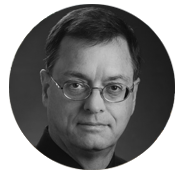Board: ARE Prep
Credit Hours: 1.00
Rating: 0 ratings
Approval Number: PACE-0647
Add to Basket
Course Description
Sustainability is defined by one source as “the ability to be maintained at a certain rate or level.” It is described elsewhere as “meeting current needs, without compromising the ability of future generations to meet their needs, in the environment we will leave them.” To every extent possible, design choices made on projects should result in the least harm possible being done to our environment, to be inherited by our descendants.
We will examine a few key principles of what can instead be called, ‘environmentally responsible’ design. Many steps that can be taken during design and after structures are complete, to reduce energy use and resources consumed. These include passive steps like building envelopes with thermally superior components. In the design phase, buildings can be positioned on site to strategically allow or preclude solar gain, admit or deny natural ventilation, and maximize or minimize shade needed in different seasons. The efficiency of building envelopes can be maximized. After passively minimizing energy use, active technologies can recapture energy or generate power for internal use or addition to the grid. Finally, investing in renewable energy enterprises allows investments in the environment beyond the confines of one site.
Concepts examined here should provide a few more tools to design sustainably.
Course Objectives
Upon successful completion of this module, the student will be able to:
- Determine what is being referred to, when ‘sustainability’ is being discussed.
- Define the broad strategies used in designing sustainable buildings
- Explain why buildings renovated for adaptive reuse are arguably the greenest buildings.
- Examine using the perpetual temperature of the earth below the frost line to preheat and precool incoming air
- Recognize the various technologies used to generate power on site from renewable resources.
- Discuss how LEED certification can be sought and obtained
- Assess the use of REC’s to invest in renewable energy technologies
Instructor Bio
 Paul Spite, BS, BA
Paul Spite, BS, BA
AFD Consulting, Founder and Principal
Paul is a Registered Architect with over forty years of experience, a course developer and has been a teacher in multiple venues in the past. He is also a writer in many venues, having developed many studies, a few published articles, numerous short stories, multiple screenplays, two non-fiction manuals for church design and one novel. More to the focus of this endeavor, Paul has also created presentations for twenty-six lunch and learn presentations for building material manufacturers, webinars covering the subjects of Aging-in-Place and Architectural Acoustics and eleven distance learning courses for architects, engineers and contractors. As he nears retirement from managing his small architectural practice, Paul hopes to focus even more of his energy on teaching and on course development.


